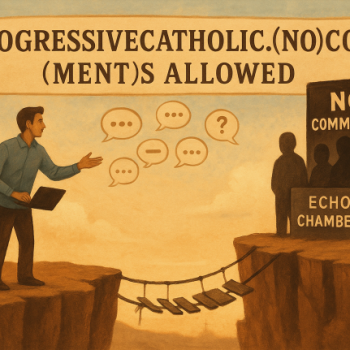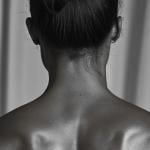Online venture gets you a front-row seat to spiritual films
Oat straw tea and ginger pie.
Sunflowers and Odorifics.
“Harold and Maude.”
The 1971 Ruth Gordon-Bud Cort flick jockeys for position with “Annie Hall” as my favorite film, the one I want to curl up on the couch and watch on a rainy day when I’ve got a full-blown case of the blue-mood boabies.
“Harold and Maude” always, without fail, makes me feel better.
Not necessarily happy. Just, better. Glad-to-be-alive better.
I was thinking of “Harold and Maude” the other day while chatting with Stephen Simon, a former bigwig Hollywood producer who now heads up a unique venture called the Spiritual Cinema Circle, a kind of distribution house for spiritually inspiring films.
Simon, who produced the films “What Dreams May Come” and “Somewhere in Time” among others, defines the spiritual cinema genre as “movies that ask who we are and why we’re here and hopefully have you feeling at least a little bit better about being a human being when they’re finished than when they start.”
For the last five months, the Spiritual Cinema Circle has been offering home-delivered DVD copies of spiritual films, usually a couple of shorts, a documentary and a feature-length drama, for $24 a month. It works something like the online movie service Netflix, except you get to keep the DVDs — about 45 films a year.
So far, without any formal advertising, the Circle has more than 9,000 subscribers in 60 countries. Clearly, Simon’s struck a nerve.
A recent month’s offering included four films on two DVDs that came packaged in an attractive trifold paper sleeve (like those eco-friendly CD covers).
“The Visits” was a 15-minute “Sixth Sense”-meets-Lifetime Television story about a widower and his young daughter, and “Waiting for Ronald,” a slightly longer heartwarmer about two developmentally disabled men who set out from their group home to make it on their own.
There was also a documentary about Tibetan Buddhist yogis, and a full-length feature film called “Mother Ghost,” with well-known actors Joe Mantegna and Kevin Pollak in featured roles, about a man grappling with the death of his mother.
Each of the films was interesting and touching, some smarmier than others. All four had a certain intangible quality in common. The beauty and/or triumph of the human spirit, or something like that.
The Spiritual Cinema Circle, which can be found at www.spiritualcinemacircle.com, distributes the kind of movies that normally don’t get seen outside of film festivals. They’re very un-Hollywood.
No gratuitous violence. No intergalactic car chases. Nothing too tawdry.
When Simon, who was raised Jewish but now describes himself simply as a regular meditator (“spiritual, not religious”), talks about spiritual films, he’s doesn’t mean religious-themed films.
More “Eternal Sunshine of the Spotless Mind.” Less “The Ten Commandments.”
“What we’re not going to promote is the dogma of a particular, specific religion,” Simon explained of the film choices the Circle offers. “We could certainly do a film that had a religious theme to it…. But we would not, for instance, do “The Passion [of the Christ].” First of all, in my opinion, it doesn’t make you feel better about being a human being when it’s finished. And it’s tied to very specific edicts and beliefs of a particular religion.
“What we feel spirituality is is a broader umbrella than that,” he said.
Simon’s working definition of religion is “an organization that tells us a very particular set of rules, regulations and rituals we must follow in order to experience God.”
Spirituality, on the other hand, “is an individual experience in which we encounter God, goddess, life, the universe, Spirit, however you might want to define it, in a very particular and individual way without any preset rules. . . . ‘Spiritual’ is its own thing. It’s not better than, it’s not less than. It’s just different.”
In other words, all religion is spirituality, but not all spirituality is religion. Like how all bourbon is whisky, but not all whisky is bourbon.
It was a fascinating exercise to ask a few friends and colleagues what the most spiritual film they could think of is.
The answers were as different as the people themselves.
One said “Zulu,” the 1964 film about 79 outnumbered British soldiers who do battle with 4,000 Zulu warriors in Africa, because it emphasized “faith, brotherhood, discipline, and the fact that these men overcame incredible odds to survive.”
Another fellow finds Roberto Benigni’s Nazi death camp film “Life is Beautiful” spiritually inspiring through its depiction of the triumph of the human spirit, and a woman I work with says “all of life lessons can be gleaned from” the romantic comedy “When Harry Met Sally.”
One of my good friends chooses the Sean Penn and Susan Sarandon film “Dead Man Walking.”
“It didn’t move me because Sean Penn was redeemed, but because that nun [Sarandon] believed without a doubt that it can happen to us all, even the worst of us. It’s hard to believe somebody loves us that much, given all the mistakes and trips and stumbles that happen along the way.”
Simon says two of his favorite spiritual films are the classic “It’s a Wonderful Life” and Stanley Kubrick’s “2001: A Space Odyssey.” Go figure.
And then there’s mine: “Harold and Maude,” the story of a lost 20-something Harold (Bud Cort) and his 80-year-old lady love Maude (Ruth Gordon).
It’s a love story, but it’s not about romance.
I think it’s about falling hopelessly in love with life.
The film is full of moments that I find inspiring, gems of wisdom, or “Maudisms” — “Greet the morning with a breath of fire!”, “Don’t get officious. You’re not yourself when you’re officious,” and “Try something new each day. After all, we’re given life to find it out. It doesn’t last forever.”
There’s a scene that always gives me existential pause, and blows away the stubborn boabies. (For the uninitiated, boabies are something between ennui and mild depression.)
Harold and Maude are sitting in a field of daisies. Maude tells him if she were a flower, she’d be a sunflower because they’re tall and simple. Harold says he’d be a daisy because they’re all the same.
They’re not all the same, Maude tells him. Each one is different, unique, special.
“I believe much of the world’s sorrow comes from people who know they are this,” Maude says with tears in her eyes as she holds up a daisy. “Yet let themselves be treated . . .” motioning to the field of daisies, “as that.”
Spirituality is, indeed, in the eye of the beholder.
Copyright © The Sun-Times Company
All rights reserved. This material may not be published, broadcast, rewritten, or redistributed.















